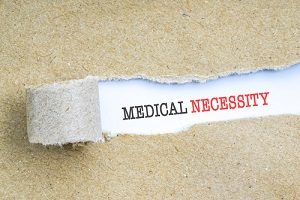Catch of the Week: 345 Charged in $6 Billion National Health Care Fraud and Opioid Takedown

In the largest health care fraud and opioid enforcement action in the Justice Department’s history, 345 defendants—including more than 100 doctors, nurses, and other medical professionals—face charges for submitting over $6 billion in false or fraudulent claims to federal and private insurers. Defendants stand accused of submitting $4.5 billion in fraudulent claims linked to telemedicine, $845 million associated with substance abuse treatment facilities, or “sober homes,” and $806 million connected to other health care fraud and illegal opioid distribution schemes.
According to the DOJ, telemedicine executives allegedly paid medical providers to order unnecessary equipment, tests, and medications, either without any patient interaction whatsoever or after only brief phone conversations with patients whom the provider had no preexisting relationship with. Durable medical equipment companies, testing labs, and pharmacies then purchased those orders in exchange for illegal kickbacks and bribes, according to the government and court documents.
The Justice Department’s September 30th press release highlights the government’s continued focus on prosecuting fraud schemes involving telemedicine. “Telemedicine can foster efficient, high-quality care when practiced appropriately and lawfully. Unfortunately, bad actors attempt to abuse telemedicine services and leverage aggressive marketing techniques to mislead beneficiaries about their health care needs and bill the government for illegitimate services,” said HHS Deputy Inspector General Gary Cantrell.
In another kickback scheme, the government accuses owners and operators of substance abuse treatment facilities, their patient recruiters, and doctors for paying bribes and kickbacks to secure patient referrals to the treatment facilities. The defendants also allegedly subjected patients suffering from substance abuse to medically unnecessary testing, prescribed the patients medically unnecessary controlled substances, and billed insurers for therapy sessions that were never provided.
“This nationwide enforcement operation is historic in both its size and scope, alleging billions of dollars in healthcare fraud across the country,” said Acting Assistant Attorney General Brian C. Rabbitt. “These cases hold accountable those medical professionals and others who have exploited health care benefit programs and patients for personal gain. The cooperative law enforcement actions announced today send a clear deterrent message and should leave no doubt about the department’s ongoing commitment to ensuring the safety of patients and the integrity of health care benefit programs, even amid a national health emergency.”
Healthcare fraud remains rampant and whistleblowers play a crucial role in stopping it. Company insiders or other individuals who learn of similar fraud on healthcare programs can report it under the qui tam provisions of the False Claims Act. Successful whistleblowers are entitled to share in the government’s recovery.
Read More:
- Anti-Kickback Statute and Stark Law
- Fraud in Government Telehealth Programs
- Healthcare & Pharmaceutical Fraud
- Laboratory Fraud
- Medical Billing Fraud
- Medical Devices and DME Fraud
- Medically Unnecessary Services
- Pharmaceutical Fraud
- Think you have a whistleblower case?
- Contact us for confidential consultation
Tagged in: Anti-Kickback and Stark, Catch of the Week, Healthcare Fraud, Lack of Medical Necessity, Medical Billing Fraud, Medical Devices and DME, Pharma Fraud, Provider Fraud,